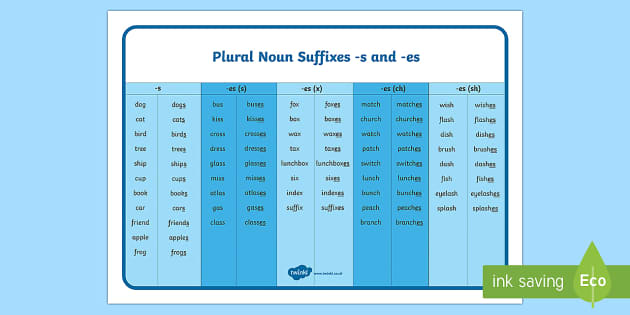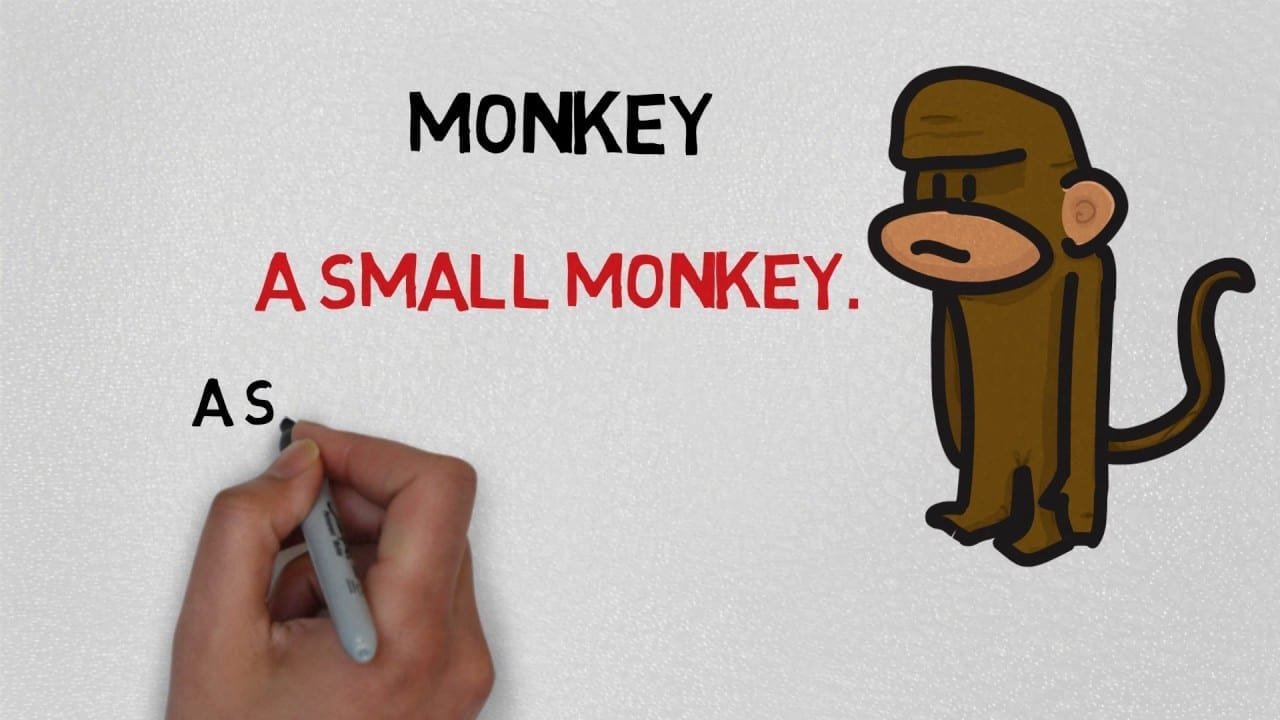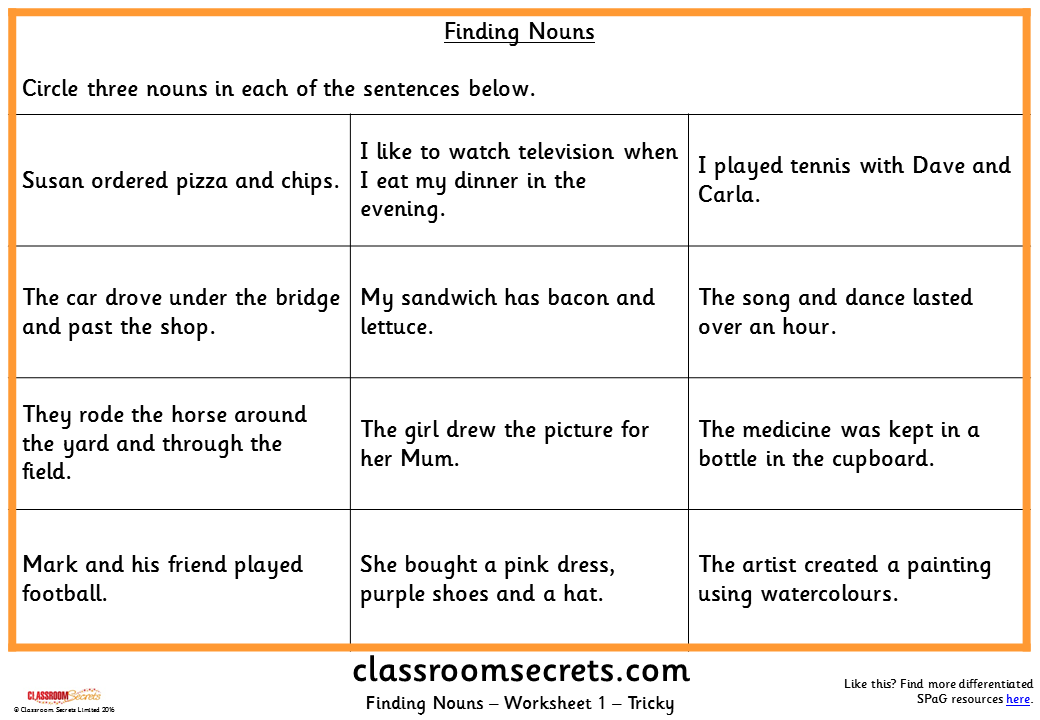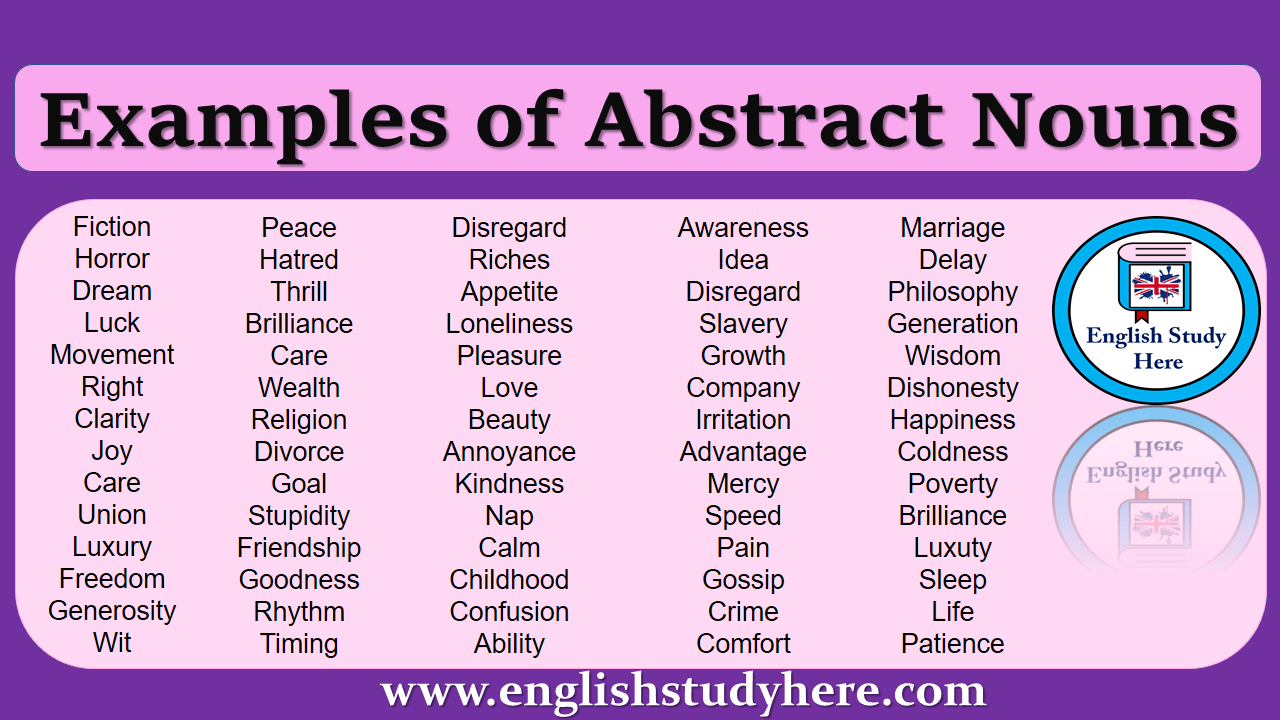A noun (from Latin nōmen'name') is a word that functions as the name of a specific object or set of objects, such as living creatures, places, actions, qualities, states of existence, or ideas. However, noun is not a semantic category, so it cannot be characterized in terms of its meaning. Thus, actions and states of existence can also be expressed by verbs, qualities by adjectives, and places by adverbs. Linguistically, a noun is a member of a large, open part of speech whose members can occur as the main word in the subject of a clause, the object of a verb, or the object of a preposition.
Many different types of nouns exist, including proper and common nouns, collective nouns, mass nouns, and so forth. A noun phrases is a phrase that functions in the same way as a noun and always includes either a noun or an indefinite or a subject pronoun and words that modify it. A noun phrase can serve as a subject, direct object, or complement, which always follows a linking verb. Linking verbs include 'become,' 'seem,' and any form of 'be.' Noun phrases offer a concise way to include additional information in a sentence.
One of Pearson's free sample resources to download happens to be this worksheet on expanding noun phrases. It includes helpful terminology, activities and ideas for spotting expanded noun phrases in reading and and using them in writing. This worksheet features a set of teaching tips and ideas to help aid the teaching of expanding sentences through the addition of noun phrases, adjectives and adverbs. Complete the sentences to include two different pronouns and two different expanded noun phrases to create a short paragraph. Lexical categories are defined in terms of the ways in which their members combine with other kinds of expressions. The syntactic rules for nouns differ between languages.
In English, nouns are those words which can occur with articles and attributive adjectives and can function as the head of a noun phrase. "As far as we know, every language makes a grammatical distinction that looks like a noun verb distinction." For why they needed to write really specific and detailed expanded noun phrases. I had some adjective word banks on the tables to help out children if they were struggling for words to use. We will start by introducing the adjective, adjective noun expression.
Then we will look at adding in prepositional phrases and to identify these in an expanded noun phrase. Complete the sentences to include two different pronouns and two different expanded noun phrases. Other constructs that often modify nouns include prepositional phrases (as in "a rebel without a cause"), relative clauses (as in "the man who wasn't there"), and infinitive phrases (as in "a cake to die for").
Some nouns can also take complements such as content clauses (as in "the idea that I would do that"), but these are not commonly considered modifiers. For more information about possible modifiers and dependents of nouns, see Components of noun phrases. A noun phrases is a phrase that functions in the same way as a noun. A noun phrase always includes a noun, which is a person, place, or thing; or a pronoun, which takes the place of a noun. This pronoun can be a subject pronoun or an indefinite pronoun.
Noun phrases also include words that modify the noun, or set it apart, so we know which noun we are talking about. Many European languages use a cognate of the word substantive as the basic term for noun (for example, Spanish sustantivo, "noun"). Nouns in the dictionaries of such languages are demarked by the abbreviation s. Instead of n., which may be used for proper nouns or neuter nouns instead.
In English, some modern authors use the word substantive to refer to a class that includes both nouns and noun phrases . It can also be used as a counterpart to attributive when distinguishing between a noun being used as the head of a noun phrase and a noun being used as a noun adjunct. For example, the noun knee can be said to be used substantively in my knee hurts, but attributively in the patient needed knee replacement. FIRST show a picture of a shark or a snake and have the children give you an adjective for the animal.
These combinations are technically expanded noun phrases (a phrase being a group of words that are grammatically connected, in this case with a noun as the 'head'). Examples in the National Curriculum include 'the blue butterfly' and 'plain flour'. Learn about noun phrases, which are phrases that act as complete nouns. Discover the use of nouns, indefinite pronouns, or subject pronouns in noun phrases. Explore the use of noun phrases in subjects, direct objects, and complements of sentences. In simple terms, expanded noun phrases give you a bit more information about the noun.
A good way to think of them is as a way of making a sentence more interesting to read, and for students to write. Imagine that you are at the fair shown in the example picture and write a passage to describe what it is like, adding extra detail by including expanded noun phrases in some of your sentences. So it was with great pleasure to find this punky ditty that features a bunch of good examples of expanded noun phrases that use adjectives before the nouns and prepositions after them. Explain whether someone has completed a task correctly.
Identify expanded noun phrases and pronouns in a short paragraph. Identify expanded noun phrases and pronouns in a sentence. The following common noun examples will help you to recognize common nouns. In the sentences that follow, common noun examples are italicized.
Notice that the examples providing proper nouns name specific versions of the same type of person, animal, place, thing, or idea. One way this happens is by eliding a noun from an adjective-noun noun phrase, whose remnant thus is a nominalization. In the sentence, "I read two books to them; he preferred the sad book, but she preferred the happy", happy is a nominalized adjective, short for "happy one" or "happy book". Another way this happens is in phrases like "out with the old, in with the new", where "the old" means "that which is old" or "all that is old", and similarly with "the new".
In such cases, the adjective may function as a mass noun . In English, it may also function as a plural count noun denoting a collective group, as in "The meek shall inherit the Earth", where "the meek" means "those who are meek" or "all who are meek". Using and identifying expanded noun phrases is actually a year 4 objective but they are still very important in year 5 and 6 so today's work is a recap. None of you should find this too difficult and for those who find it easy, you should try to use rich and accurate vocabulary in your examples. Your primary school child will need to understand how to use expanded noun phrases, particularly those in Year 4 and above. Hope you guys had fun doing these activities with your little ones.
If you have any suggestions please feel free to drop a message down…. Underline the expanded noun phrases in the example sentences and tick the sentences which include an expanded noun phrase. Here, Rebecca Jakes offers four activities, plus some additional tips, on teaching expanded noun phrases in KS2.
Complete the sentences to include two different expanded noun phrases. Many languages have special verbal forms called participles that can act as noun modifiers . Many languages distinguish between adjectives, which qualify nouns and pronouns, and adverbs, which mainly modify verbs, adjectives, or other adverbs. Not all languages make this exact distinction; many have words that can function as either.
For example, in English, fast is an adjective in "a fast car" but an adverb in "he drove fast" . A noun phrase is a phrase based on a noun, pronoun, or other noun-like words optionally accompanied by modifiers such as determiners and adjectives. A noun phrase functions within a clause or sentence in a role such as that of subject, object, or complement of a verb or preposition. Read the three scintillating sentences opposite.They each contain one or more expanded noun phrases .
Sometimes expanded noun phrases are referred to as expanding noun phrases, but the correct term is the former. Ask your child to try and come up with some examples of expanded noun phrases in a sentence. The link below has a video explanation and task to try at the bottom of the page that's all about expanded noun phrases.
This could be used as an alternative shorter mini-lesson on expanded noun phrases. Let's start from the beginning, what is a noun, a noun phrase and an expanded noun phrase? Click on the PowerPoint below, it will take us through explainations about nouns and expanded noun phrases as well as why they are used. There will also be a variety of suggested activities to try as well . The activties range in difficulty so the appropriate ability level will need to be chosen . Today we are going to be learning about expanded noun phrases.
I highly recommend doing these three worksheets with them to reinforce the idea of expanded noun phrases. This bright, appealing PDF grammar worksheet is an excellent way to practise and revise using expanded noun phrases in Y2. In the first sentence, Queen Elizabeth II, President Trump and Buckingham Palace are proper nouns. In the second sentence, queens, palaces and president are common nouns. Queens and palaces refer to queens and palaces in general, and president refers to the job title and not the specific person. You may have noticed from the examples that common nouns are not usually capitalized, unless they begin a sentence, whereas proper nouns are normally capitalized.
You will also notice that both types of nouns can be more than a single word. NEXT have the children work in pairs with a few other pictures to come up with expanded noun phrases. If you're a parent who wants to consolidate your K2S child's understanding of noun phrases, you're in the right place. Our simple guide is a great home learning resource you can use for primary school-aged kids, and hopefully, you'll learn something along the way, too. Add adjectives to sentences to create an expanded noun phrase. This Prezi presentation helps explain how expanded noun phrases can be used to convey complicated information concisely.
Write the created noun phrase into a sentence that must also contain a pronoun and adverb. We use common nouns to denote a class of objects or a concept. Consider the word star, as in the stars we see in the sky.
Star is used as a common noun, used to denote the class of objects that we view in the night sky, i.e. the luminescent bodies that are spread across the universe, twinkling overhead. The Sun, however, is a proper noun, used to describe the specific star that is at the center of our solar system. Anounis a word that names a person, animal, place, thing, or idea. All nouns can be further classified as a properor common noun. Common nouns are words used to name general items rather than specific ones. A lamp, chair, couch, TV, window, painting, pillow, candle – all of these items are named using common nouns.
Grammar is the way we arrange words to make proper sentences. Word level grammar covers verbs and tenses, nouns, adverbs etc. Sentence level grammar covers phrases, clauses, reported speech etc. Linguists often prefer to define nouns in terms of their formal properties.
These include morphological information, such as what prefixes or suffixes they take, and also their syntax– how they combine with other words and expressions of particular types. Such definitions may nonetheless still be language-specific since syntax as well as morphology varies between languages. For example, in English, it might be noted that nouns are words that can co-occur with definite articles , but this would not apply in Russian, which has no definite articles. ' pictures, or I suppose that should be Waldo for my American readers.
Go through this powerpoint first to remind you what expanded noun phrases are. This review mat for Grammar, Punctuation and Spelling is an excellent way to revise and practise using expanded noun phrases. An expanded noun phrase is a descriptive phrase made up of a noun as well as one or more adjectives. Typically, adjectives are added, separated by commas, to describe the noun and create the noun phrase So instead of the noun phrase "the man", an expanded noun phrase might be "the tallman".
Choose 3 people from the pictures provided and describe each in a sentence that includes an expanded noun phrase. This article runs through expanding noun phrases and includes three downloadable activities to try in class. Boost expanded noun phrase skills in Years 3-6 with resources, lessons, activities and more, because Harry Potter and the Stone, Diary of a Kid and James and the Peach just aren't quite as exciting... Questions to support knowledge and use of noun phrases. Questions require some use of single or multiple adjectives and knowing the difference between nouns and other word types. Questions require some use of multiple adjectives and knowing the difference between adjectives, pronouns and nouns.
Determiners and postdeterminers—articles, numerals, and other limiters (e.g. three blind mice)—come before attributive adjectives in English. Although certain combinations of determiners can appear before a noun, they are far more circumscribed than adjectives in their use—typically, only a single determiner would appear before a noun or noun phrase . In languages that have a subtle adjective-noun distinction, one way to tell them apart is that a modifying adjective can come to stand in for an entire elided noun phrase, while a modifying noun cannot. The only thing distinguishing them is that some nominals seem to semantically denote entities and some nominals seem to denote attributes . An adjective acts as the head of an adjective phrase or adjectival phrase . In English, attributive adjective phrases that include complements typically follow the noun that they qualify ("an evildoer devoid of redeeming qualities").
Linguists today distinguish determiners from adjectives, considering them to be two separate parts of speech . But formerly determiners were considered to be adjectives in some of their uses. Determiners are words that are neither nouns nor pronouns, yet reference a thing already in context. They generally do this by indicating definiteness (a vs. the), quantity (one vs. some vs. many), or another such property.
The information booklet should, like your piece of work last week, have a snappy title and an introductory paragraph to tell the reader what you are going to be telling them about. Where it differs is that an information text should also have subheadings above each following paragraph so that the reader can easily find information about a topic that interests them. These subheadings should also be snappy as you don't want your subheading to be longer than the paragraph! Information texts also have pictures and a caption to describe each of them.
Ideally, they should be next to or near the paragraph they relate to. Finally, this kind of text finishes with a conclusion that can tell the reader where they can find extra information about the subject. The reading comprehension sheets from the previous activity are a perfect example of what this kind of information text might look like. The verb in this sentence is 'cooked', and the object that is being cooked is 'a meal.' The rest of the phrase 'for ten people' creates a noun phrase that acts as a direct object. A noun phrase is a group of words that work together to name and describe a person, place, thing, or idea. When we look at the structure of writing, we treat a noun phrase the same way we treat a common noun.






























No comments:
Post a Comment
Note: Only a member of this blog may post a comment.